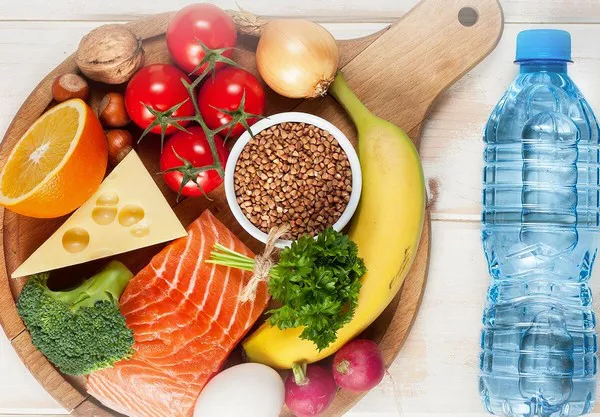Protein is a fundamental nutrient that plays a crucial role in building muscle. When it comes to achieving muscle growth, protein intake is often emphasized as one of the key factors. In this article, we will explore the optimal amount of protein required to effectively build muscle and the scientific evidence supporting these recommendations.
Understanding Muscle Protein Synthesis
Before diving into the recommended protein intake, it is essential to understand the concept of muscle protein synthesis (MPS). MPS refers to the process by which the body builds new muscle proteins, leading to muscle growth and repair. To stimulate MPS, an adequate supply of dietary protein is required.
The Recommended Daily Allowance (RDA) for Protein
The recommended daily allowance for protein, as set by the Dietary Reference Intakes (DRI), is 0.8 grams of protein per kilogram of body weight. However, this recommendation is primarily designed to meet the needs of sedentary individuals and does not take into account the additional protein requirements for those looking to build muscle.
Protein Intake for Muscle Building
To optimize muscle growth, it is generally recommended to consume a higher protein intake than the RDA. The American College of Sports Medicine (ACSM) suggests that individuals engaged in regular resistance training may benefit from a protein intake ranging from 1.2 to 2.0 grams per kilogram of body weight per day.
Protein Timing
In addition to the total protein intake, the timing of protein consumption can also influence muscle building. Consuming protein before and after a workout has been shown to enhance muscle protein synthesis and improve recovery.
Pre-Workout Protein Intake
Consuming protein before a workout provides the body with the necessary amino acids required for MPS during the exercise session. Aim to consume around 20 to 40 grams of protein before your workout, depending on your body weight and individual needs. This can be in the form of a protein shake, lean meat, or plant-based protein sources.
Post-Workout Protein Intake
Following a workout, the body is in a heightened state of muscle protein synthesis, making it an opportune time to consume protein for muscle repair and growth. Similar to pre-workout protein intake, aim for 20 to 40 grams of protein post-workout. This can help maximize the muscle-building potential of your training session.
Protein Quality and Amino Acid Profile
Not all protein sources are created equal when it comes to building muscle. The quality of protein is determined by its amino acid profile and its digestibility. Proteins that contain all essential amino acids in adequate amounts are considered complete proteins and are generally more beneficial for muscle building.
Animal-Based Protein Sources
Animal-based protein sources such as lean meats, poultry, fish, eggs, and dairy products are considered high-quality proteins. They provide all the essential amino acids required for muscle growth and repair. Including a variety of these protein sources in your diet can help ensure an adequate intake of essential amino acids.
Plant-Based Protein Sources
Plant-based protein sources, such as legumes, nuts, seeds, and grains, can also contribute to muscle building. However, plant-based proteins may be lower in certain essential amino acids, such as lysine or methionine. Combining different plant-based protein sources throughout the day can help ensure a complete amino acid profile.
Protein Supplements for Muscle Building
In some cases, meeting the protein requirements solely through whole food sources can be challenging. Protein supplements, such as whey protein powder, casein protein, or plant-based protein powders, can be a convenient way to increase protein intake. These supplements can be particularly beneficial for individuals who struggle to consume enough protein from whole foods alone.
Potential Risks and Considerations
While protein is essential for muscle building, it is important to consider individual needs and potential risks associated with high protein intake. Excessive protein consumption can strain the kidneys and may lead to dehydration. It is crucial to stay adequately hydrated and consult with a healthcare professional or registered dietitian before significantly increasing protein intake, especially if you have pre-existing kidney or liver conditions.
Conclusion
In conclusion, protein intake is a critical factor in building muscle. To optimize muscle growth, aim for a protein intake ranging from 1.2 to 2.0 grams per kilogram of body weight per day. Consuming protein before and after workouts can further enhance muscle protein synthesis and aid in recovery. Focus on consuming high-quality protein sources, both animal-based and plant-based, to ensure an adequate amino acid profile. Protein supplements can be a convenient option to meet increased protein requirements. However, it is important to consider individual needs and potential risks associated with high protein intake. By incorporating these guidelines into your diet and training regimen, you can effectively support muscle building and achieve your fitness goals.
[inline_related_posts title=”You Might Be Interested In” title_align=”left” style=”list” number=”6″ align=”none” ids=”3002,3055,2943″ by=”categories” orderby=”rand” order=”DESC” hide_thumb=”no” thumb_right=”no” views=”no” date=”yes” grid_columns=”2″ post_type=”” tax=””]

































